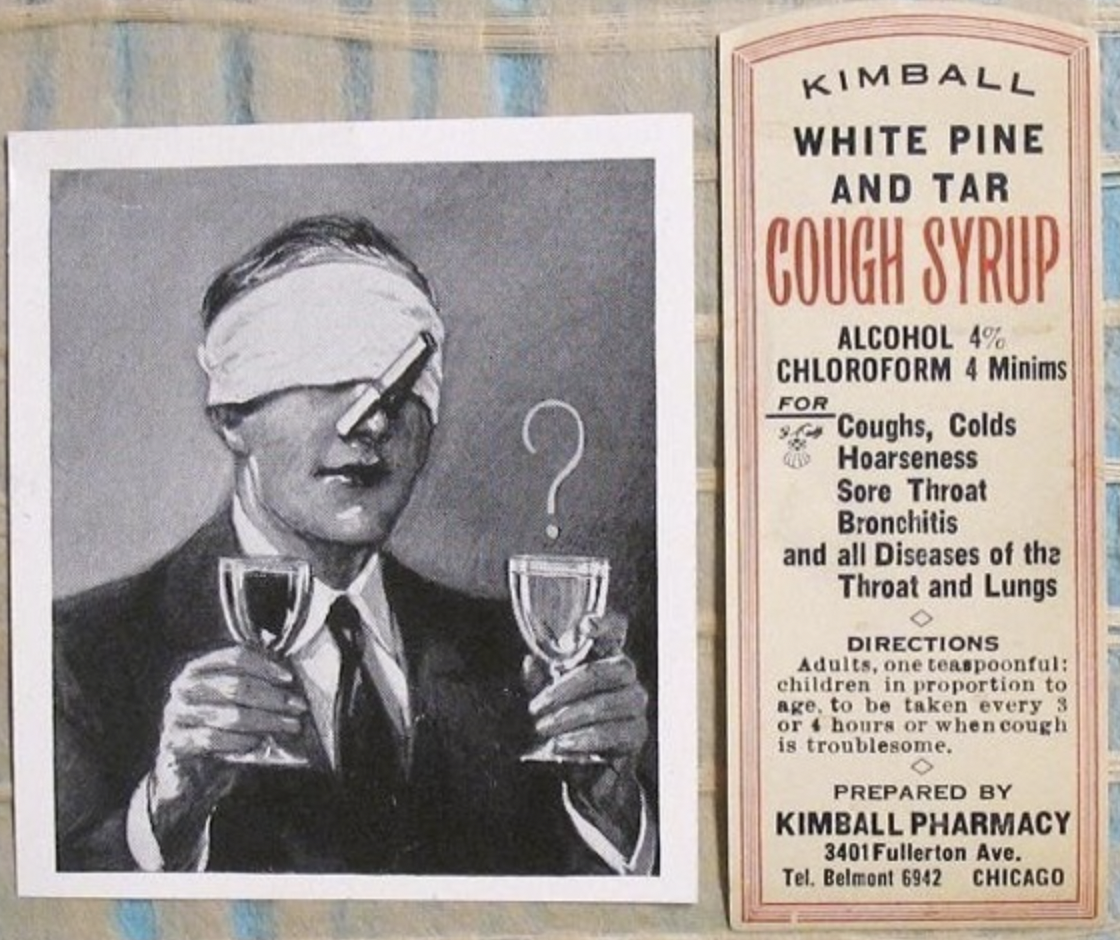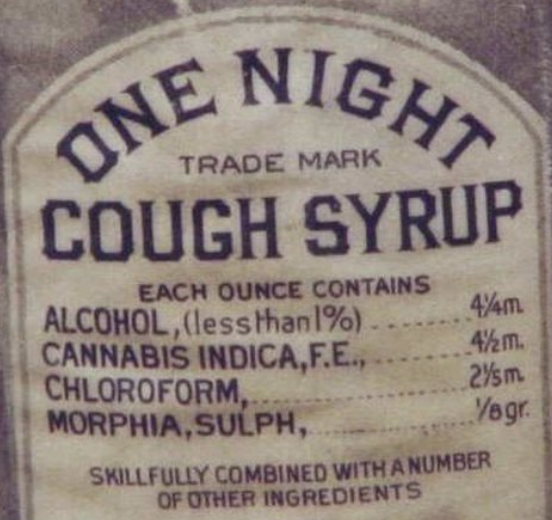Will an ingredient in cough syrup change the Parkinson's landscape?
By Michael S. Okun, M.D.
This is an image by the blog artist and person with Parkinson’s Jonny Acheson MD.
When the news broke that a cough syrup could potentially slow the progression of Parkinson’s disease, many folks immediately rushed to the drugstore. Could it possibly be that a common over the counter medicine used for cough and phlegm reduction could change the landscape of Parkinson’s disease? In this month’s parkinsonsecrets.com I will explore how the idea of a cough syrup has made headlines.
The picture appeared in the Mumbai Mirror in Feb 2023.
What is ambroxol?
There are a lot of ambroxol brands on the market and remember it can be one of many ingredients so you must read the bottle.
The drug ambroxol is a ‘mucolytic agent’— it reduces sputum (also called phlegm) and it is frequently mixed into cough syrup or pills (it also is a component in some over the counter tea). It can be administered to treat common colds and to address more severe congestion. The drug works about 30 minutes after it is ingested— either in pill form or mixed in cough syrup. It acts to degrades ‘fibers’ which make up something called ‘mucopolysaccharides.’ The idea of ambroxol is to make ‘sputum’ thinner and less viscous. Once sputum is thinned it is much easier to cough up and clear from the airway. Cannabis, chloroform, and morphine have all been commonly used in cough syrups so we always recommend you check the label when using a cough syrup or remedy.
Ambroxol has also been shown to have an anesthetic effect and has become a common treatment for ‘sore throat.’ The drug became widely available in ~1978 and is also sold in a sore throat lozenge form.
Ambroxol is available ‘over the counter’ in many countries. We caution folks to always ‘read’ the labels of cough syrups, as there are frequently many ‘other’ ingredients.
Below is a brief list of some of the names ambroxol it is sold under, however folks should keep in mind ambroxol may be an ingredient hidden within many different brand cough syrups.
What’s in your cough syrup? Not uncommon in the ‘old days to have alcohol, cannabis, chloroform and morphine.
Healthline has a great recent article on the danger of cough syrups.
A few international brands containing ambroxol: Muciclar (Italy), Mucobrox (Spain), Bisolvon (Australia and Switzerland), Brontex (Lithuanian), Ambro (Kazakhstan).
Is ‘sputum/phlegm’ bad?
‘Sputum’ is very important to maintaining your health and well-being. It contains cells which are trained by your immune system to fight bacteria and other ‘invaders’ which may be present in your airway. Why does sputum get thick? Sputum is the body’s defense mechanism and it ‘traps the bad guys.’ Your body then turns on special ‘hair-like cells’ called cilia which push the infectious ‘bad guys’ up to the back of the throat —so you can ‘cough them out.’
How does ambroxol connect to Parkinson’s?
Ironically it was another disease which spurred the development of ambroxol for Parkinson’s. Gaucher disease leads to a buildup of fatty substances in many organs in the body. Gaucher is caused by a deficiency of an enzyme called GCase. Researchers were searching for a Gaucher treatment and tested over 1000 possible drugs. The results revealed that ambroxol, a common component of cough syrup, was an enhancer of the enzyme GCase. GCase is an abbreviated term for the enzyme glucocerebrosidase.
Ambroxol blocks sodium channels in cells and this may possibly explain why it improves sore throat pain and inflammation. The link to Parkinson’s however is thought to be a completely different mechanism. This is where the Parkinson story intersects with Gaucher disease— in both diseases, administering ambroxol raises the levels of the lysosomal enzyme we call glucocerebrosidase (GCase). In both diseases this could lead to a potential therapy.
Interestingly, scientists think the ‘mucus thinning mucolytic effect’ of ambroxol may be the same mechanism which improves Parkinson’s disease— diffusion of ambroxol into lysomes. Lysosomes are ‘good’ and play the role of ‘clearing body invaders’ such as infections.
What was shown in the recent ambroxol Parkinson study?
Recent study published by Shapira and colleagues in JAMA Neurology.
Anthony Schapira, Stephan Mullin and colleagues published an important paper in JAMA Neurology on Ambroxol in Parkinson’s disease; the AIM-PD trial. These researchers asked the simple question whether ambroxol can efficiently travel to the brain regions necessary to treat Parkinson’s. We call this process penetrating the ‘blood-brain barrier.’ They were also interested in what happens when you give ambroxol to persons with Parkinson disease with and without glucocerebrosidase gene mutations (GBA). In their trial of 17 patients, they found ambroxol was able to get enter the brain and could bind the β-glucocerebrosidase enzyme. The investigators performed spinal taps and showed ambroxol increased β-glucocerebrosidase enzyme protein levels and α-synuclein levels. What was very interesting—ambroxol was able to do this whether or not there was a Parkinson’s mutation. This could possibly translate into a therapy for Parkinson’s patients regardless of their gene status.
What are the next steps for an ambroxol trial?
Following the results from the small phase II 17 person trial (AIM-PD)— a larger phase 3 trial ASPro-PD has been launched. Cure Parkinson’s, Van Andel Institute and the John Black Charitable Foundation, along with the Parkinson’s Virtual Biotech, will test whether ambroxol can slow Parkinson’s progression. The senior author from the 17 person trial Anthony Schapira, from the University College London, will lead this large study of ~330 patients. You must be a resident of the UK and it does not matter whether or not you have a genetic test or carry the GBA gene mutation— the trial is open to those with and without GBA mutations and Parkinson’s disease.
Anthony Schapira from UCL will lead the large Phase III Ambroxol study
There will be 330 persons with Parkinson’s who will be followed for two years in one of the ~10-12 centers in the United Kingdom conducting the research. There will be a placebo control arm of the study.
The aim of the treatment will be: to slow the progression of Parkinson’s as measured by quality of life and movement scales.
More information on the trial can be found on this website: Cure Parkinson Trust Website
Should I rush out to the drugstore and get some ambroxol?
People used to rush out and buy cough remedies and later found out ‘maybe it wasn’t such a great idea.’ One of my favorites is ‘Bayer's' Glyco-Heroin.’
The short answer is ‘no.’
The data we currently have available is from a small number of participants and the study was not placebo controlled.
Many cough syrups, tablets and teas may contain sedatives or other drugs which can worsen Parkinson’s symptoms, particularly in those with cognitive and thinking issues (i.e. may lead to confusion).
The ‘bar’ necessary to slow Parkinson’s disease progression is high. All previous placebo controlled trials have failed to clear this bar.
Once a ‘placebo controlled trial’ is performed, there will be a bountiful amount of information to inform ‘shared decision making’ as to risks and benefits of ambroxol for Parkinson’s disease. Several recent large PD clinical trials have revealed a worsened outcome for those who received the study drug and this is a reason to wait for the data.
The great news for folks with Parkinson’s is that the large 330 patient study will be rapidly performed and we should soon have the answer(s) we seek.
Michael Okun is the author of this blog post on cough medicines and Parkinson’s. He works with Indu Subramanian and Jonny Acheson to provide timely information on hot Parkinson’s topics. He is a co-author of many books including Parkinson’s Treatment: 10 Secrets to a Happier Life, Living with Parkinson’s and Ending Parkinson’s.











